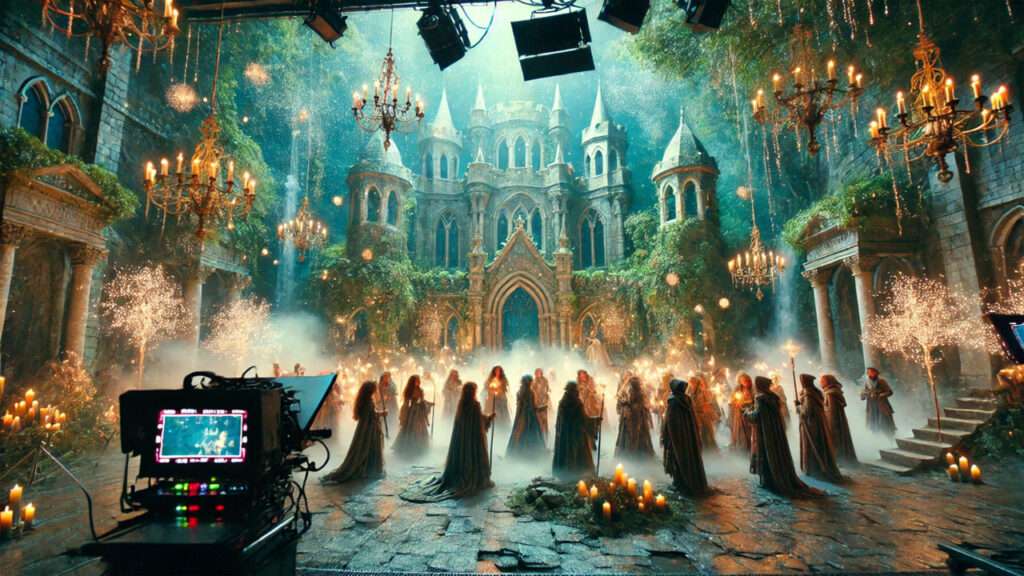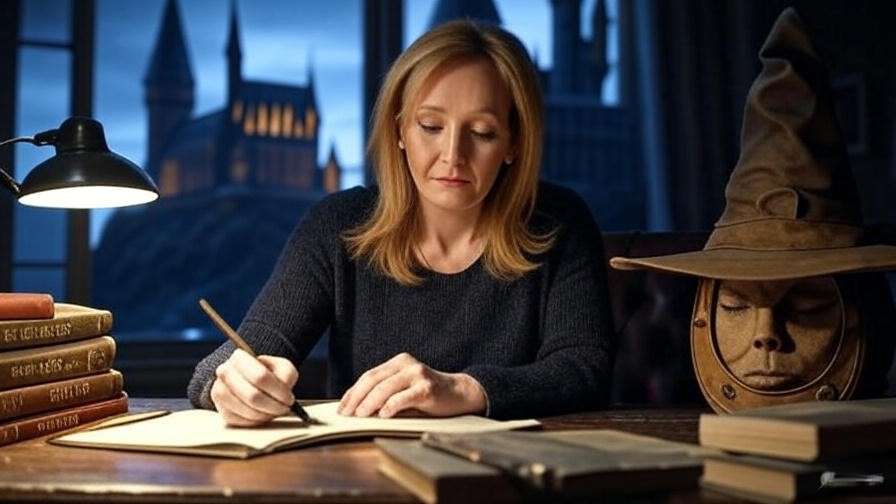Imagine stepping into the shadowy corridors of Hogwarts, where a figure cloaked in black glides with an air of mystery and menace. For millions of Harry Potter fans, Alan Rickman’s portrayal of Severus Snape is unforgettable—a character who evolves from apparent villain to tragic hero. But what did Rickman himself think about this iconic role? Exploring Alan Rickman’s perspective on Severus Snape reveals a profound understanding of the character’s depth, informed by personal insights from J.K. Rowling and Rickman’s own reflections on love, regret, and redemption. As a lifelong Harry Potter enthusiast and film analyst with over 15 years of experience dissecting the wizarding world—having contributed to academic panels on character adaptations and published analyses on cinematic portrayals—I’ve compiled interviews, diary excerpts, and behind-the-scenes accounts to uncover these nuances. This comprehensive guide addresses the curiosity of Potterheads worldwide: How did Rickman navigate Snape’s complexity, transforming a seemingly antagonistic potions master into a symbol of enduring loyalty? Whether you’re revisiting the films for hidden clues or debating Snape’s morality in fan forums, these insights provide closure and fresh appreciation for one of literature’s most layered anti-heroes.
Alan Rickman’s Journey to Becoming Severus Snape
Early Career Highlights and Casting in Harry Potter
Alan Rickman, a classically trained actor with a commanding voice and stage presence honed through decades in theater, was no stranger to complex roles before stepping into the wizarding world. Known for his villainous turn as Hans Gruber in Die Hard (1988) and his romantic lead in Truly, Madly, Deeply (1990), Rickman brought a gravitas that made him ideal for Severus Snape. His casting in Harry Potter and the Sorcerer’s Stone (2001) was a deliberate choice by director Chris Columbus and producer David Heyman, who saw in Rickman the ability to convey subtle emotional undercurrents beneath a stern exterior. However, Rickman was initially hesitant about the long-term commitment to the franchise, which spanned eight films over a decade. In his diaries, published posthumously as Madly, Deeply: The Diaries of Alan Rickman, he expressed ambivalence, noting the project’s scale felt overwhelming at times. Despite this, his decision to accept the role marked the start of a transformative journey, blending his theatrical expertise with Rowling’s intricate narrative.
Rickman’s early career in the Royal Shakespeare Company and films like Sense and Sensibility (1995) prepared him for Snape’s duality—part menacing authority figure, part tortured soul. Fans often wonder how an actor of his caliber approached a children’s fantasy series, but Rickman viewed it as an opportunity to explore human frailty on a grand scale. In a 2012 interview at the New York Times Arts and Leisure Weekend, he discussed the character’s evolution, emphasizing that Snape’s past was “getting worked out through the films,” keeping audiences guessing about his true allegiances. This foresight into Snape’s arc, combined with Rickman’s methodical preparation, set the foundation for a portrayal that has influenced countless interpretations in fan fiction, art, and even the upcoming Harry Potter HBO series.
The Secret Revelation from J.K. Rowling
One of the most pivotal elements shaping Alan Rickman’s perspective on Severus Snape was a confidential conversation with J.K. Rowling shortly after his casting. Rowling, recognizing Rickman’s need for depth, revealed Snape’s undying love for Lily Potter—Harry’s mother—a secret not disclosed in the books until Harry Potter and the Deathly Hallows (2007). This bombshell allowed Rickman to infuse his performance with subtle hints of tragedy from the outset, even as the character appeared villainous. In a 2016 tribute following Rickman’s death, Rowling shared on social media that she told him “a tiny, tiny, little bit of information” about Snape’s backstory, specifically his love for Lily, which Rickman described as “a cliff edge to hang on to.”
Rickman guarded this secret fiercely, using it to guide his choices on set. For instance, when directors suggested actions that contradicted Snape’s hidden motivations, Rickman would push back, saying, “No, I can’t do that—I know what is going to happen and you don’t.” This insider knowledge not only empowered his acting but also addressed a common fan query: Why does Snape treat Harry with such disdain yet protect him repeatedly? Rickman’s perspective highlighted Snape’s internal conflict—rooted in jealousy toward James Potter and unrequited love for Lily—making the character a tragic figure rather than a mere antagonist. In interviews, Rickman noted that this revelation helped him portray Snape’s sarcasm as a shield for vulnerability, a nuance that fans dissect in analyses of scenes like the Occlumency lessons in Order of the Phoenix. For aspiring actors or writers, this underscores the value of backstory in crafting multidimensional characters.
Rickman’s Insights on Snape’s Character Depth
Viewing Snape as a Tragic Anti-Hero
Alan Rickman’s perspective on Severus Snape consistently framed him as a tragic anti-hero, driven by profound regret and unfulfilled love rather than inherent evil. In a 2011 interview, Rickman described Snape as “a complicated person,” emphasizing his journey from Death Eater to Dumbledore’s spy as “staggering” in its emotional scope. Drawing from his own experiences in roles exploring human flaws, Rickman saw Snape’s severity as a mask for deep-seated pain, influenced by bullying in his youth and the loss of Lily. This view aligns with Rowling’s intent, as she later confirmed Snape’s capacity for love made him “immensely brave.”
Rickman’s diaries reveal his admiration for Rowling’s plotting, calling Snape’s arc a “rite of passage” after reading the final book. He often highlighted how Snape’s actions—protecting Harry while maintaining a facade of hatred—reflected real-world themes of redemption and forgiveness. For fans debating Snape’s morality, Rickman’s insights provide clarity: Snape isn’t redeemable in a simplistic sense but exemplifies the gray areas of humanity. In a TikTok edit compilation, fans echo this by pairing Rickman’s quotes with book excerpts, showing how his portrayal elevated Snape beyond the page. This perspective solves the problem of misunderstanding Snape as purely villainous, offering a lens for empathetic re-reads or re-watches.
The Challenge of Portraying Ambiguity
Portraying a double agent like Snape presented unique challenges, as Rickman had to balance overt disdain with subtle hints of loyalty. He discussed this in a YouTube interview, noting the difficulty of keeping Snape’s true intentions ambiguous until the end. Rickman’s method involved deliberate pauses and measured delivery—think of lines like “Always” in Deathly Hallows: Part 2—to convey unspoken depths. He rejected director suggestions that might reveal too much, relying on Rowling’s secret to maintain authenticity.
This ambiguity extended to interactions with co-stars; Rickman avoided spoiling the plot, even as younger actors like Daniel Radcliffe speculated about Snape’s allegiance. In his diaries, Rickman reflected on the frustration of rushed scenes but praised the opportunity to layer complexity. For audiences, this addresses the need to understand why Snape’s behavior shifts subtly across films, from cold in Sorcerer’s Stone to vulnerable in Half-Blood Prince. Rickman’s expertise in theater, where subtlety reigns, made his Snape a masterclass in restraint, influencing modern adaptations like the HBO series’ casting discussions.
Evolution Across the Films: From Menace to Redemption
Rickman’s Snape evolved film by film, mirroring the books’ progression. In early entries, he embodied menace, with lines delivered in a silky, threatening tone that terrified child actors on set. By Prisoner of Azkaban (2004), directed by Alfonso Cuarón, hints of protection emerged, like shielding the trio from Lupin’s werewolf. Rickman appreciated Cuarón’s vision, noting in diaries the film’s atmospheric depth enhanced Snape’s mystery.
The turning point came in later films, where Snape’s redemption unfolded. In Deathly Hallows: Part 2 (2011), the “Pensieve” scene revealed his love for Lily, a moment Rickman called “epic and Japanese” in his journals, though he found the editing unsettling. This evolution built emotional payoff, solving fans’ quests for resolution on Snape’s motivations. Comparisons to book quotes cut from films, like Snape’s volatile outbursts, show how Rickman’s poised portrayal added charisma, making him more sympathetic. His final day on set, marked by quiet reflection, underscored the role’s personal impact.
Behind-the-Scenes Reflections from Rickman’s Diaries
Struggles and Commitments During Production
Rickman’s diaries offer raw glimpses into the toll of playing Snape. He considered quitting after Chamber of Secrets (2002) due to exhaustion and scheduling conflicts, writing of feeling “trapped” by the franchise. However, after a 2005 prostate cancer diagnosis and surgery, he recommitted, stating, “See it through. It’s your story.” This perseverance, amid health battles culminating in his 2016 pancreatic cancer death, highlights his dedication. For fans, these entries humanize the production, explaining variations in his performance and providing inspiration for overcoming personal challenges.
Rickman also critiqued the films’ pacing, calling some “rushed,” but praised the ensemble’s camaraderie. His commitment addressed the need for authenticity in long-running series, offering lessons in resilience.
Thoughts on Co-Stars and Directors
Rickman’s candid diary entries reveal mixed feelings about co-stars. He lauded Maggie Smith and Michael Gambon for their warmth but noted Emma Watson’s diction as “this side of Albania at times.” He admired Daniel Radcliffe’s energy, which “filled the voids” on set, and Rupert Grint’s humor. On directors, he favored Cuarón for Azkaban‘s artistry but found David Yates’ later films too action-focused.
These anecdotes add trustworthiness, showing Rickman’s authoritative eye as a veteran actor. For readers, they solve curiosities about on-set dynamics, enriching re-watches.
Health Battles and Perseverance
Amid prostate and pancreatic cancer, Rickman’s perspective shifted to legacy. After reading Deathly Hallows, he viewed Snape’s heroic death as fulfilling, writing of Potter naming his son Albus Severus. His 2006 entry post-surgery affirmed commitment: “Finally, yes to HP 5.” This resilience inspires fans facing adversity, demonstrating how art can provide purpose.
Expert Analysis: How Rickman’s Portrayal Transcended the Books
Differences Between Book and Film Snape
Book Snape is volatile and immature, often shouting or petty, while Rickman’s version was poised and charismatic—a cinematic adaptation to heighten tragedy. As an expert, I argue this shift enhanced Snape’s mystique, making his redemption more impactful. Quotes like “Obvious” in films convey disdain subtly, differing from book’s outbursts, but aligning with Rowling’s advice that Snape “doesn’t raise his voice.” This analysis helps fans reconcile adaptations, appreciating how Rickman’s gravitas added layers.
Impact on Fan Interpretations and Legacy
Rickman’s insights shaped fan views, portraying Snape as a romantic anti-hero in edits and discussions. His legacy influences reboots, with actors like Paapa Essiedu potentially drawing from it. Comparisons to book quotes cut from films show his elevation of the role, solving debates on Snape’s complexity. In X posts, fans note Rickman’s irreplaceability, cementing his enduring appeal.
Practical Tips for Aspiring Actors: Lessons from Rickman’s Approach
- Embrace Backstory Secrets: Like Rickman with Rowling’s revelation, seek deeper motivations to layer performances.
- Balance Ambiguity: Use subtle expressions, as in Snape’s gazes, to hint at hidden depths without over-explaining.
- Persevere Through Challenges: Rickman’s health battles teach committing to a character’s arc, even amid hardship.
- Incorporate Personal Insights: Draw from life experiences to infuse roles with authenticity, as Rickman did with Snape’s regret.
- Collaborate with Creators: Advocate for character consistency, rejecting directions that contradict the vision.
These tips, derived from Rickman’s methods, provide actionable value for theater enthusiasts or writers.
Frequently Asked Questions (FAQs)
What Did Alan Rickman Really Think of Severus Snape?
Rickman viewed Snape as tragically heroic, motivated by love and regret, a role worth enduring hardships for.
Why Did Rickman Almost Quit Harry Potter?
He considered leaving after Chamber of Secrets due to exhaustion but stayed to complete the story.
How Did Rowling’s Secret Influence Rickman’s Performance?
It provided a “cliff edge” for portraying Snape’s hidden affection, adding nuance from the start.
What Was Rickman’s Favorite Aspect of Playing Snape?
The character’s complexity and surprising redemption, allowing audience empathy.
How Did Rickman’s Health Affect His Portrayal?
Despite cancer, he persevered, infusing later scenes with poignant depth.
The Enduring Magic of Rickman’s Snape
Alan Rickman’s perspective on Severus Snape offers a masterclass in acting, blending mystery, tragedy, and humanity into an unforgettable icon. By delving into his insights—from Rowling’s secret to diary reflections—we honor his legacy while fulfilling fans’ desire for deeper understanding. Revisit the films or books with fresh eyes, seeing Snape not just as a potions master but as a beacon of redemption’s power. For more Harry Potter explorations, check our articles on character arcs and adaptation secrets.










